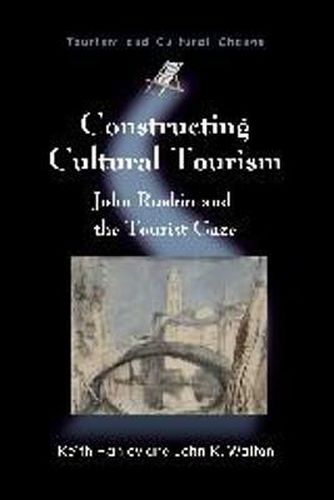Readings Newsletter
Become a Readings Member to make your shopping experience even easier.
Sign in or sign up for free!
You’re not far away from qualifying for FREE standard shipping within Australia
You’ve qualified for FREE standard shipping within Australia
The cart is loading…






This book is an interdisciplinary collaboration between a literary critic and cultural historian, which examines and recovers a radical and still urgent challenge to the industrialisation of cultural tourism from the work of John Ruskin. Ruskin exerted a formative influence on the definition and development of cultural tourism which was probably as significant as that, for example, of his contemporary Thomas Cook. The book assesses Ruskin’s overall influence on the development of national and international tourism in the context of pre-existing expectations about tourism flows and cultural capital and alongside parallel and intersecting trends of the time; examines Ruskin’s contribution to the tourist agenda at all social levels; and discusses Ruskin’s significance for current debates in tourism studies, especially questions of the place of the ‘canon’ of traditional European cultural tourism in a post-modern tourist setting, and the various incarnations of ‘heritage tourism’.
$9.00 standard shipping within Australia
FREE standard shipping within Australia for orders over $100.00
Express & International shipping calculated at checkout
This book is an interdisciplinary collaboration between a literary critic and cultural historian, which examines and recovers a radical and still urgent challenge to the industrialisation of cultural tourism from the work of John Ruskin. Ruskin exerted a formative influence on the definition and development of cultural tourism which was probably as significant as that, for example, of his contemporary Thomas Cook. The book assesses Ruskin’s overall influence on the development of national and international tourism in the context of pre-existing expectations about tourism flows and cultural capital and alongside parallel and intersecting trends of the time; examines Ruskin’s contribution to the tourist agenda at all social levels; and discusses Ruskin’s significance for current debates in tourism studies, especially questions of the place of the ‘canon’ of traditional European cultural tourism in a post-modern tourist setting, and the various incarnations of ‘heritage tourism’.